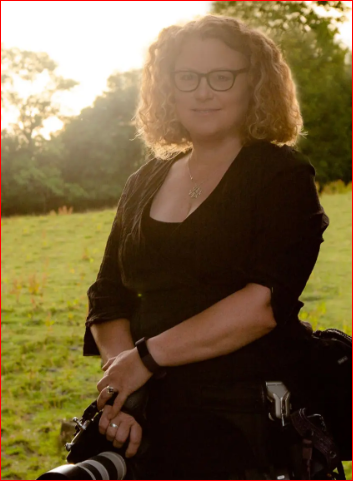A Powerful Framework for Personal and Business Growth
The Hero’s Journey is a storytelling framework made famous by Joseph Campbell, who identified the common stages many stories follow. From ancient myths to modern-day films, this structure resonates with audiences on a deep level because it mirrors our own personal growth and transformation. But beyond storytelling, the Hero’s Journey also serves as a powerful tool for understanding our personal and professional lives. For entrepreneurs, it highlights not only their individual journey but also how they can become mentors for others.
In this article, we will explore the Hero’s Journey, how it reflects my own story, how it informs the way I approach business, and how it applies to the journey businesses take to grow and evolve.
In this article
We will explore the Hero’s Journey, how it reflects my own story, how it informs the way I approach business, and how it applies to the journey businesses take to grow and evolve.
What is the Hero’s Journey?
The Hero’s Journey consists of three main acts, each with several stages:
Departure (The Call to Adventure) – The hero begins in their ordinary world but is called to leave their comfort zone and embark on a new adventure. After some hesitation, they accept the challenge and cross into the unknown.
Initiation (The Hero’s Trials) – The hero faces tests and challenges, often receiving help from allies or mentors along the way. Eventually, they face a central ordeal that brings about transformation.
Return (The Road Back) – Having overcome the ordeal, the hero returns to their ordinary world, transformed and carrying an “elixir” of wisdom or power that benefits themselves and others.
Departure (The Call to Adventure)
Ordinary World: The hero starts in their everyday life, unaware of the adventure ahead.
Call to Adventure: The hero receives a call to leave the ordinary world, often through an event or a realization.
Refusal of the Call: Initially, the hero may hesitate or refuse the call due to fear or reluctance.
Meeting the Mentor: A guide or mentor appears to provide the hero with advice, training, or an item to help them on their journey.
Crossing the Threshold: The hero fully commits to the adventure and leaves the ordinary world, entering the unfamiliar or magical world.
My Hero’s Journey
For many years, I worked in IT and found it fulfilling, enjoying the sense of accomplishment and mastery over my skills. This was my Ordinary World. However, as I reached the age of 40, I no longer felt the same sense of satisfaction. The excitement had faded, and a new opportunity arose—creating content using video. This was my Call to Adventure.
Initially, I refused the call
I knew that transitioning into a new industry would take years of learning and practice, just as it had taken me years to master my IT career. It was daunting to think about starting over. But I also knew that staying in IT wouldn’t fulfil me in the long term. I didn’t want to look back at 50 and regret not making the change, so I eventually accepted the challenge. Crossing the Threshold into media production was exciting, yet filled with uncertainty.
While my wife provided the initial spark of inspiration, there wasn’t a traditional mentor on my journey. Instead, I turned to the wealth of online resources, YouTube, LinkedIn, and websites—to guide me through this unfamiliar world. These platforms served as my mentors, offering knowledge and skills along the way.
Now, I find myself still in the process of leaving my old world behind and navigating the new. The journey is ongoing, filled with ups and downs, but it has been transformative. I am no longer just an IT professional but someone building a media production company with integrity at its core.
Becoming the Mentor in Business
As I continue my own Hero’s Journey, I’ve also taken on the role of a mentor for other businesses. In the same way that I sought guidance in the early stages of my career shift, I now provide businesses with the tools, advice, and creative direction they need to communicate their message effectively. This is where the Hero’s Journey plays out again, but this time I serve as the mentor for my clients.
Many businesses are at the Call to Adventure stage when they realise they need to improve their marketing and communication. They may feel the need to tell their story better but hesitate, much like I did. Perhaps they feel overwhelmed by the changing media landscape, or they worry that adopting new strategies will take too much time and effort.
This is where I come in. As a mentor, I guide these businesses through their own Crossing of the Threshold, whether that’s creating a new video strategy, redesigning their brand communication, or learning to engage with their audience more authentically. I help them face the trials of content creation and digital marketing, offering advice and support so they can succeed.
The Hero’s Journey for Businesses
Just as individuals embark on personal transformations, businesses go through their own Hero’s Journey. Here’s how the stages apply:
Ordinary World: A business begins in its established routine, operating successfully but perhaps not reaching its full potential. This is the world of traditional marketing strategies or word-of-mouth referrals, with some success but a feeling that there’s more to achieve.
Call to Adventure: The business recognises that its communication is not as effective as it could be. Maybe competitors are pulling ahead with more innovative content, or the business feels that it’s not engaging with its audience meaningfully. The business is called to explore new methods of reaching people, perhaps through video or online content.
Refusal of the Call: Despite recognising the need for change, the business hesitates. Adopting new marketing methods can feel risky or costly, and there may be a reluctance to leave behind familiar ways of doing things.
Meeting the Mentor: This is where businesses look for guidance. They may seek out a consultant, marketing expert, or media production company, someone to help them navigate this new terrain. In this stage, I become the mentor, providing the tools and knowledge they need to move forward confidently.
Crossing the Threshold: The business decides to take the plunge, committing to a new strategy, whether that’s producing video content, engaging in social media campaigns, or revamping their entire brand communication.
Tests, Allies, and Enemies: As the business begins to implement these changes, they will face challenges. Maybe the new content doesn’t perform as expected, or internal resistance slows progress. Allies, like the mentor or key team members, will help them overcome these obstacles.
Ordeal: The central trial is often when the business must face its biggest hurdle—whether it’s a major rebrand, a critical campaign launch, or a significant shift in strategy. How they handle this moment defines their transformation.
Return with the Elixir: After successfully navigating the changes, the business returns to its ordinary world, but now it is transformed. It has the tools, strategies, and experience to engage with its audience in a way that’s more meaningful and impactful.
1. David – Printing Service Owner
Background: David runs a small, family-owned printing service in Cardiff, Wales. His business has been passed down through generations, and they have built a loyal local clientele by providing quality print materials for local schools, small businesses, and community events. However, with the rise of digital services and competition from larger, cheaper online printers, David’s business has started to decline.
Call to Adventure: David begins to realise that traditional marketing, word-of-mouth, and local foot traffic are no longer enough to keep his business afloat. He’s hearing more and more clients mention they found competitors online, and a few have even gone elsewhere because his business lacks a strong digital presence. He knows he needs to step up his online game, building a website, creating content to show off the quality of his services, and maybe even expanding into new offerings like personalised stationery. However, the idea of doing this feels overwhelming.
Refusal of the Call: David hesitates. He’s used to the old ways of running his business, and the thought of jumping into digital content creation, managing social media, and producing online marketing feels foreign. He’s worried it’ll be too expensive, too time-consuming, and that it won’t pay off. His business is already under strain, and he fears the risk of losing more money in this transition.
Meeting the Mentor: After speaking with a fellow small business owner who successfully turned around their own marketing, David realises he doesn’t have to do everything alone. He seeks out advice from a local business mentor who specialises in helping traditional businesses modernise their content strategy. Through a series of consultations, David begins to understand the basics of digital marketing and how to communicate his business’s unique story online.
Crossing the Threshold: David takes the leap. He invests in a small website and starts creating simple but engaging content that highlights his company’s history, the quality of their prints, and their community roots. With the help of a mentor, he also creates instructional videos on how businesses can benefit from high-quality print materials. Slowly, he starts to see more online enquiries and even gains new clients who would never have known about him otherwise. He has crossed into the digital world, uncertain but with renewed hope.
2. Emma – Bakery Owner
Background: Emma runs a small bakery in Swansea, Wales. She’s passionate about baking, especially traditional Welsh cakes and bread. Her bakery has been a staple in her neighbourhood, and locals love the freshness and taste of her products. However, as more health-conscious, vegan, and gluten-free bakeries pop up in town, she notices a shift in customer demand. She’s losing foot traffic, and some of her loyal customers are trying out the new bakeries.
Call to Adventure: Emma realises that she needs to adapt to these changing preferences. She could create a new line of gluten-free and vegan products to attract a wider audience. But she also knows that simply baking these new products isn’t enough. She needs to communicate these changes effectively, both in-store and online, to regain her competitive edge and win back customers. Social media, recipe sharing, and content creation seem like the way forward, but the bakery has never ventured into that world.
Refusal of the Call: Despite knowing that change is necessary, Emma is hesitant. She’s already stretched thin managing the day-to-day operations of the bakery, and the idea of setting up social media accounts, creating content, and learning how to market online feels overwhelming. Plus, she’s unsure whether her traditional baking style will resonate with the more modern crowd on social media. What if the investment of time and effort doesn’t pay off?
Meeting the Mentor: Emma stumbles upon a local small business workshop where a social media expert talks about how to market food businesses online. She connects with the speaker and realises that she can start small. She doesn’t need to change her brand completely but can highlight the new offerings while staying true to her roots. The mentor suggests she document her journey of adding new products, sharing stories of her bakery’s history and recipes while also embracing the new.
Crossing the Threshold: Emma starts an Instagram page for her bakery, featuring mouth-watering photos of her cakes, breads, and new gluten-free and vegan options. She begins sharing her story through content, explaining the process behind her baking and the care she puts into her work. Gradually, she sees an uptick in foot traffic from people who discovered her online. As she gains confidence in this new way of connecting with her customers, Emma feels a renewed sense of pride and purpose in her bakery’s evolution.
3. Sophie – Virtual Business Assistant
Background: Sophie is a virtual business assistant based in Newport, Wales. She works remotely, offering administrative, scheduling, and customer support services to small businesses and entrepreneurs. While Sophie’s client base was growing steadily, she’s noticed that in recent months, the demand has slowed. With more virtual assistants entering the market, she struggles to stand out and find new clients. Her offerings are solid, but potential clients seem to be opting for flashier, more “visible” competitors.
Call to Adventure: Sophie realises that to grow her client base and attract higher-paying clients, she needs to differentiate herself. She’s good at what she does, but her digital presence is almost non-existent. Potential clients are more likely to choose assistants with engaging websites, polished profiles, and content that showcases their skills. Sophie knows that she needs to build an online brand, produce content, and create a strong digital footprint to stand out in a crowded market.
Refusal of the Call: Sophie feels intimidated by the idea of building a personal brand. She’s comfortable with her skills as an assistant but not with promoting herself. The thought of creating blog posts, recording videos, or even writing LinkedIn articles feels foreign and outside of her comfort zone. She worries that she won’t have enough content ideas or that her self-promotion will come across as insincere or awkward.
Meeting the Mentor: After talking with a fellow freelancer who successfully built an online presence, Sophie gains some clarity. She begins following business coaches online who focus on personal branding and virtual services. One mentor, in particular, provides a simple framework for creating content: start with what you know. Sophie realises that she doesn’t need to reinvent herself. She just needs to showcase the value she already provides in a way that resonates with her audience.
Crossing the Threshold: With her mentor’s advice, Sophie sets up a professional website and LinkedIn profile, where she begins sharing articles about time management, productivity, and tips for small business owners. She also starts a blog, detailing her journey as a virtual assistant and sharing stories about how she helps her clients solve problems. Slowly, she sees more enquiries from entrepreneurs who appreciate her expertise and personal touch. Sophie has stepped into the world of content creation, and with it, her business begins to thrive again.
Conclusion
The Hero’s Journey is not just a framework for telling stories, it’s a model for personal and business transformation. For me, it has shaped my own journey from IT into media production, and it informs how I approach my work today as a mentor to other businesses.
By embracing the Hero’s Journey, businesses can understand their own growth process more clearly and see how the challenges they face are a necessary part of their transformation. Whether you’re at the beginning of your journey or in the midst of trials, recognising where you are on this path can give you the courage to push forward and succeed.
In the end, every business has the potential to return with the elixir, greater success, a stronger brand, and a deeper connection with its audience. The key is to recognise the journey and embrace the adventure.
ABOUT ME
My name is Byron Phillips and I run Datrysiad Media.
Datrysiad Media is a video production company based in Cardiff. We help businesses with their pain problems and communicate their stories.
We are a full-service video production that can handle every aspect of the video production process. Creating high-quality video content that meets your needs and exceeds your expectations.



























































